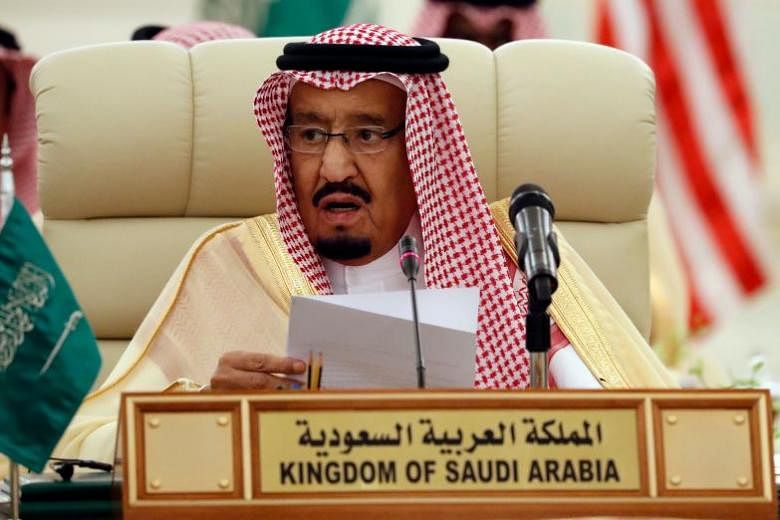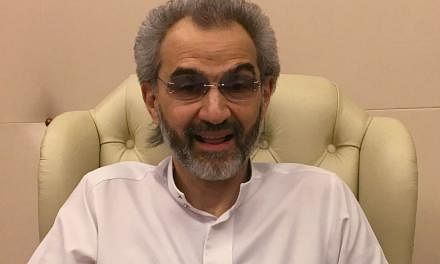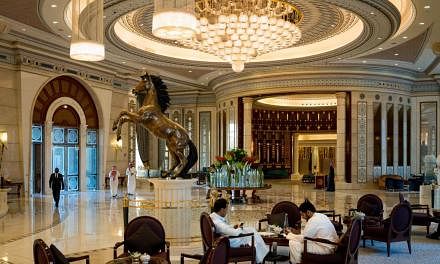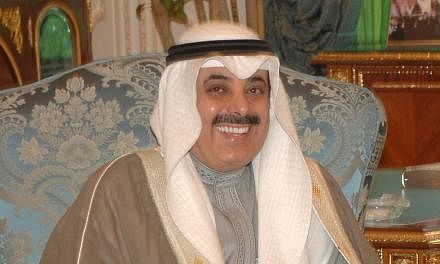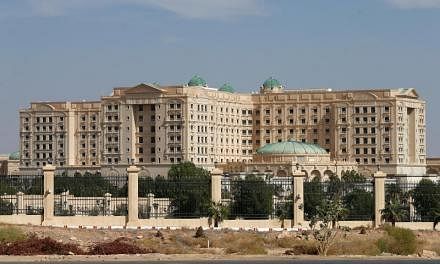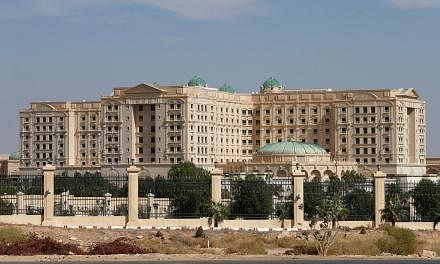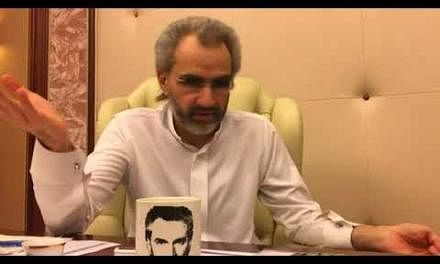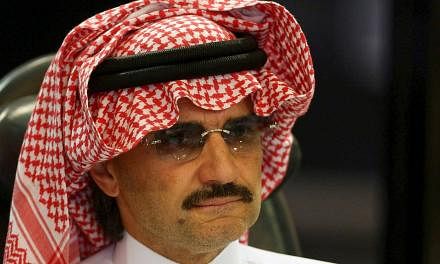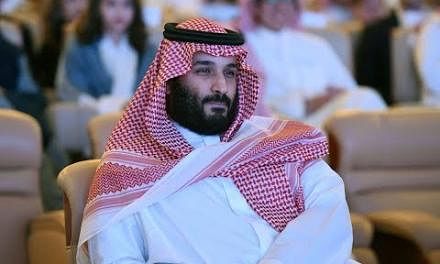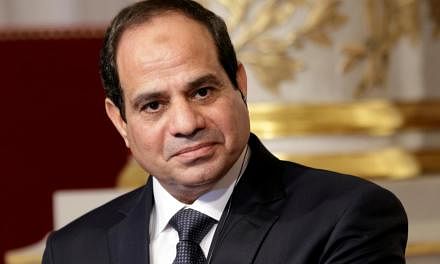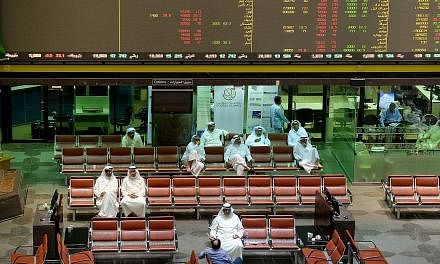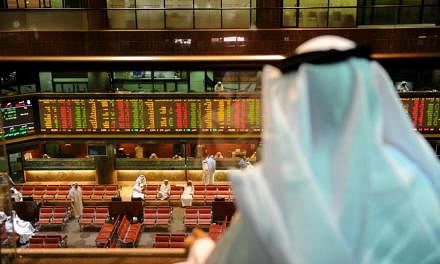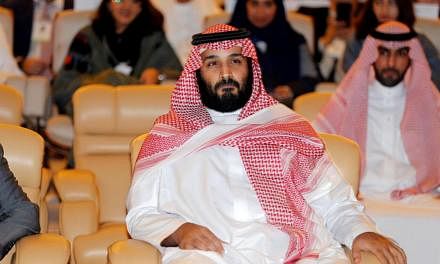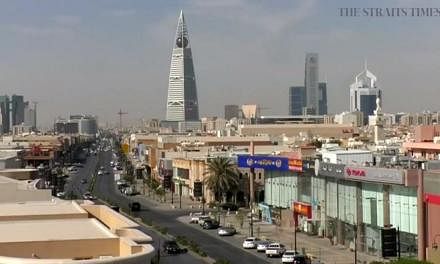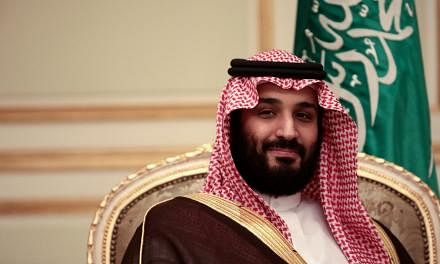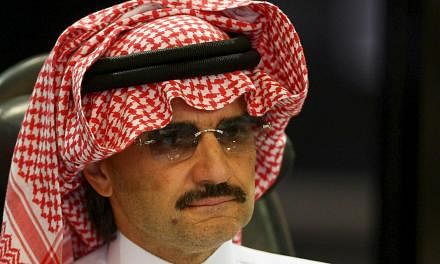RIYADH (AFP) - King Salman has overseen some important changes in Saudi Arabia since he inherited the throne from his elderly half-brother King Abdullah nearly three years ago.
Following the arrest of dozens of figures including princes, ministers and a top business tycoon on Saturday (Nov 5), here is a look back at some developments during his reign.
Changes at the top
On Jan 23, 2015 Salman takes the throne at the age of 79 after the death of Abdullah, aged about 90.
He makes key changes in the order of succession, choosing his nephew Mohammed bin Nayef as deputy crown prince and promoting his son Prince Mohammed bin Salman to defence minister.
In June of this year, he raises his son, aged 31, to the position of crown prince, completing a gradual removal of powers from Mohammed bin Nayef.
War in Yemen
In March 2015, a Saudi-led military coalition launches an air campaign to prop up Yemen's President Abedrabbo Mansour Hadi against Shiite Huthi rebels and their allies.
Coalition members deploy troops in Yemen.
Rights groups have harshly criticised the coalition for civilian casualties in its air strikes.
Rupture with Teheran
In January 2016, Saudi Arabia executes 47 people convicted of "terrorism", mostly Sunnis linked to Al-Qaeda, but also including prominent Shi'ite cleric Nimr al-Nimr. His execution stirs a diplomatic crisis with regional rival Iran.
Riyadh breaks off diplomatic relations with Teheran after its embassy and a consulate are attacked in the wake of Nimr's execution.
Economic reform
In April 2016, the Saudi government approves a major reform plan dubbed "Vision 2030", aimed at diversifying the oil-dependent economy.
The plan involves privatising part of oil giant Aramco and creating a US$2 trillion sovereign wealth fund.
Since a mid-2014 plunge in crude oil prices, Riyadh has had to slash subsidies and delay major projects.
In December 2016, the Saudi-led Opec and other non-member producers led by Russia agree to slash crude output to boost prices.
Deals with Washington
US President Donald Trump visits Saudi Arabia in May 2017 on his first foreign trip since taking office.
Washington and Riyadh announce contracts worth more than US$380 billion, including a US$110 billion arms deal aimed at countering perceived threats from Iran and radical Islamists.
Qatar crisis
In June 2017, Saudi Arabia and several Gulf allies and Egypt sever diplomatic ties with Qatar, accusing it of supporting "terrorists" and being too close to Iran.
They also take economic measures against Doha, including closing air and maritime links and sealing the country's only land border.
Qatar rejects the accusations.
More rights for women
In December 2015, Saudi Arabia opens up elections to women as both candidates and voters for the first time.
In September this year, a royal decree announces the end of a longstanding ban on women driving as of June 2018.
The decree comes days after women are allowed into a sports stadium for the first time in the country's history. Authorities later say they will allow women into several stadiums, long off limits under strict gender segregation rules.
However Saudi women must still obtain permission from a male family member to study and travel.
Crackdown
In September, authorities arrest at least 20 people, including prominent clerics Salman al-Awdah and Awad al-Qarni, in an apparent crackdown on dissent.
Prominent Saudi journalist and writer Jamal Khashoggi says he has been banned from writing in Saudi-owned newspaper Al-Hayat, apparently for defending the Muslim Brotherhood in tweets.
Investment, moderation
In late October at an investment conference dubbed "Davos in the Desert", Riyadh unveils plans for hi-tech "giga projects" and seeks to promote the kingdom as a welcoming business destination.
Authorities say they will start issuing tourist visas "soon".
And in keeping with his public image as a bold reformist, Prince Mohammed pledges "a country of moderate Islam", breaking with the kingdom's reputation for exporting a puritanical creed espoused by Muslim extremists worldwide.
